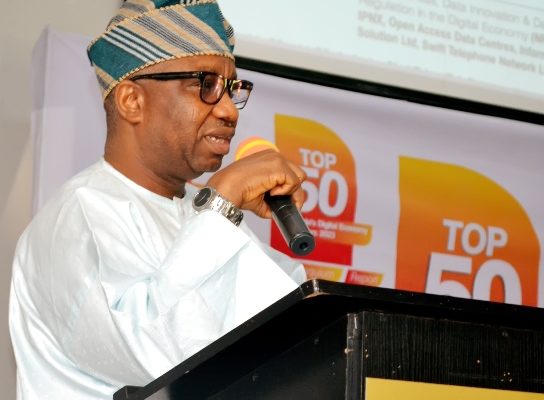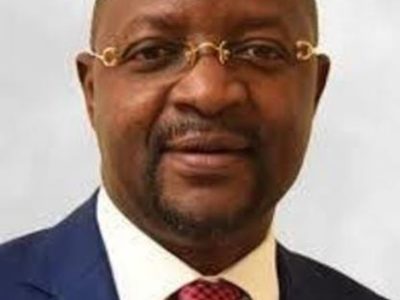By Vincent Olatunji PhD
The importance of data to lives and livelihoods in the 4th Industrial Revolution cannot be gainsaid. Figuratively, it has been compared to various substances from which life, machine or the environment derive its vitality. During, the flag-off of our 2023 National Privacy Week, the Hon. Minister of Communications and Digital Economy, Prof Isa Ali Ibrahim (Pantami) FCIIS, FBCS, FNCS described data as water which irrigates the digital economy. This is a compelling metaphor in which we can all acquiesce. In other words, without data, the digital world as we know it will cease to exist – taking with it the lives and livelihoods that solely thrives on it.
For the above singular reason, every effort should be made to protect data, create awareness around its benefits and build capacity in order to bolster its Value, Velocity, Veracity, Volume and its Variety – the 5Vs of data. This edition of IT Edge contributes to this effort in the area of awareness.
“The implementation of the Nigeria Data Protection Regulation (NDPR) by the Nigeria Data Protection Bureau has placed Nigeria solidly on the map of global data economy.”
Doubtlessly, the foregoing has a great implication for any country that intends, on the one hand, to safeguard the fundamental rights and freedoms of her citizens and, on the other hand, partake in the global digital economy which is estimated at 11.5 trillion US dollars. It may at first look like a question of choice, but when we consider the obvious and the latent vulnerabilities of citizens and economies, we will be able to appreciate the fact that “There Is No Alternative” (TINA)
With the issuance of Nigeria Data Protection Regulation (NDPR) 2019 and the affirmation of some by courts of competent jurisdiction, Nigeria leaves no one in the cloud of conjectures as regards her efforts towards data privacy and protection. The NDPR outlines principles of data protection, lawful basis of data processing, rights of data subjects, obligations of data controllers and processors and implementation mechanism.
Considering the developmental stage of our data protection ecosystem, it became imperative to adopt a Public Private Partnership model for fostering compliance. To this end we have licensed 138 Data Protection Compliance Organizations to carry our compliance as a service.
The establishment of the Nigeria Data Protection Bureau by Federal Government on the 4th of February, 2022 marked a watershed in the trajectory of data protection. The mandate of the Bureau covers the functions of an independent data protection authority – including but not limited to:-
- Protecting of data subjects’ rights, and providing means of recourse and remedies, in the event of the breach of the data subject’s rights;
- Promoting of public awareness and understanding of personal data protection and the risks to personal data;
- Ensuring compliance with national and international personal data protection good practice and obligations laid down by international agreements and treaties to which Nigeria is a party; and
- Collecting and publishing information with respect to personal data protection, including personal data breaches.
The implementation of the above has placed Nigeria solidly on the map of global data economy. The economy has also benefited in more ways than one. Currently the data protection ecosystem is worth over 5.5 billion naira and over 9,000 new jobs were added to the economy. This is just a fraction of our ongoing effort to create a pool of 500,000 globally competent data protections experts within the next 5 years.
Remarkably, our awareness and capacity building efforts are yielding results. Over 1700 data controllers/processors filed compliance audit returns in 2022 as against 630 in 2020 and 1229 in 2021. We have engaged with over 50 MDAs in the public sector. These engagements, among others, led to the issuance of the Federal Government circular from the Office of the Secretary to the Government of the Federation directing Ministries Agencies and Departments (MDAs) to comply with the provisions of the NDPR. Similarly, the Office of the Head of the Civil Service of the Federation also issued a guideline which among others directs MDAs to comply with the NDPR.
In order to strengthen the legal regulatory framework for data protection the Federal Executive Council approved the Nigeria Data Protection Bill which was presented by the Hon. Minister of Communications and Digital Economy. The Bill will now be transmitted to the National Assembly as an Executive Bill.
It is self-evident from the above that Nigeria is on course in the advancement of data privacy and protection. As we move from milestone to milestone, it is important to continually sharpen our minds with the whetstone of information as richly provided in this edition of IT Edge News.Africa.
It is our hope that lovers of knowledge who come across this edition will be inspired, like the writers and publishers, to contribute their quota to this decisive facet of sustainable development.
Dr. Vincent Olatunji PhD is the National Commissioner/CEO of the Nigeria Data Protection Bureau (NDPB). He wrote this as a Forward in Start-Year Edition of IT Edge News.Africa as part of the Nigeria’s Top 50 Digital Economy Enablers 2023 event in Lagos where he was also honoured as one of Nigeria’s Eminent Digital Economy Enablers.

































